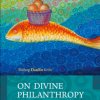Marina’s “Unity Through Diversity" concert blends patriotic themes with the rhythms and melodies of many cultures and religions represented in the United States. The concert has been described as a "Symphonic Powerhouse of Patriotism and Passion".
West Point honored Marina by inviting her to address the entire Corps of Cadets from the “Poop Deck” (which overlooks the Mess Hall with 4000 Cadets in session) where General’s MacArthur, Patton and Eisenhower gave their famous speeches. She was only the third woman in the history of the Academy to be given that honor after Margaret Thatcher and Madeleine Albright.
Marina has a superstar reputation in Eastern and Central Europe. She has focused on transforming different musical genres and styles by seamlessly blending diverse cultural and ethnic rhythms with traditional classical themes and techniques. Her music has been described as "unique to the ears yet very familiar to the soul." Born in Yugoslavia, Marina became enamored with the piano at the age of 4 when she saw her first piano being played by an accompanist in her ballet class. Marina’s hyperactive and precocious nature led her to relentlessly and obsessively collect miniature pianos of all types and sizes. After her collection grew to over 100, she finally convinced her beleaguered parents to buy her a real piano at the age of 6. The piano immediately took charge of Marina’s life and she was permanently captivated by the instrument. She was perfectly content to practice all day long, to the relief of her parents.
She was only 9 years old when she made her debut solo concert in front of an audience of 2000, performing compositions by Chopin, Beethoven and Brahms. She studied with some of the world's great piano masters from Yugoslavia, Austria, Italy, Germany and Russia. Marina developed a powerful piano technique that captured the strength she generated from elevating her body off the piano bench and transferring it into her arms. Marina’s legendary finger strength gave her an advantage in both power and speed normally reserved for large handed male pianists enabling her to dominate the piano competitions in Yugoslavia for many years. She went on to win six international piano competitions and performed with every major orchestra in Eastern and Central Europe. She completed her formal music studies in piano and composition at the doctoral level with honors from the University of Arts in Belgrade at the age of 21. Marina's recordings of "Mozart: Marina and the St. Petersburg Soloists" and "Chopin Piano Waltzes" became top-selling classical CDs in Central and Eastern Europe.
The disintegration of Yugoslavia into conflict among its diverse ethnic groups greatly affected Marina's outlook on life and her music. She craved peace and unity in the face of ethnic extremism. As a result, she developed her hallmark "Unity In The Face of Diversity" and immediately applied her vision of unity and hope to her musical compositions, creating a new genre of the ethno-classical style. "Whenever I blend diverse cultural melodies with varied ethnic rhythms, regardless of their conflicted history, the music always reveals our common humanity", Marina has said. The public quickly recognized the uplifting hopefulness in her music and Marina's popularity soared with sold-out concerts throughout Eastern and Central Europe. She toured with her transparent plexi-glass grand piano made especially for her by Herr Schimmel of the Schimmel Pianoworks in Germany. Her album my "Balkan Soul" sold over 500,000 copies becoming the best selling classical crossover CD in 11 European countries. She was featured on 40 magazine covers and hundreds of television programs. She received the Yugoslavian "Oscar" for most popular musical artist in 1996.
The following year, she received the Yugoslavian Media Award for Most Popular All Media Personality. Yugoslavia’s most popular TV Magazine explained Marina’s unique appeal with the following:
“God gave her the look of a model, the talent of an exquisite artist, and the flawless political skill of a chess master. She has an ability to communicate with diverse peoples and nations, which even great diplomats would envy. This is Marina.”
As the conflicts in Yugoslavia expanded into all out war, Marina witnessed the suffering of ethnic strife firsthand. During the height of the civil wars and ignoring extensive political pressures, Marina challenged the hatred and violence by taking an apprehensive Serbian National Orchestra to Kosovo's largest music hall to play both Muslim and Christian music to an appreciative standing room audience of Muslims and Christians without a single incidence of violence. As a result of this act, however, she was banned from appearing on television by political extremists. She responded by performing over 75 concerts to large crowds in shopping centers, music halls and hotels with her original music that seamlessly blended ethnic and cultural rhythms with Muslim and Christian melodies.
On the last day of bombing, and in contrast to Slobodan Milosevic's proclamation of victory, Marina introduced her new composition "Kosovo" at the largest concert hall in Belgrade. As she played the deeply interwoven Christian and Muslim melodies of “Kosovo" with tears flowing from her eyes, she noticed that the audience also began to weep as everyone in the concert hall realized that Yugoslavia, as a rich multi-cultural nation, was now no more.
The next day Marina was advised to leave the country immediately for her own safety. Avoiding the secret police that were searching for her, she was guided to the US Embassy in Budapest where by special bipartisan Congressional arrangement she was able to enter the United States. Following the ouster of Milosevic, Marina was invited by the newly formed moderate government to return to Serbia for a concert tour and over 300,000 fans came to hear the music that helped calm a nation torn apart by hatred and pain.
Following the tragedy of 9/11, Marina felt compelled to return to the United States to perform a series of benefit concerts for the victims and their families in Pennsylvania and Maryland and to thank the American people for their generosity and support toward mix marriage Bosnian refugees who fled persecution through asylum in the United States.
In America, critics have described Marina as a "James Bond" beauty with a powerhouse technique that delivers an emotional punch like a “Balkan thunderbolt,” while her compositions have been described as “breathtakingly original” and “captivating the soul”. Marina has performed to enthusiastic audiences and standing ovations at major venues such as Carnegie Hall (she has made two separate sold-out appearances), the Chicago Symphony Center, Toronto Center for the Arts, the Chicago Navy Pier Auditorium many others throughout the country. Laura Bush and Cherie Blair (the British Prime Minister’s wife) along with 2000 other guests were dazzled when Marina played her original arrangement of “America, the Beautiful” at the annual First Lady’s Luncheon.
Marina also had a multi-city concert tour in the United States and Canada to raise awareness and humanitarian funds for orphans and needy children throughout Eastern Europe by assisting various charities such as the Yugoslavian Lifeline Humanitarian Organization and the Russian Children’s Welfare Society.
Marina is the 2011 recipient of the “Leaders of Conscience Award”, which recognized her courage and work in uniting diverse cultures amid the conflict, ethnic strife and violence that once embroiled the Balkans.
Marina is currently living in New York City where she is composing a musical based on the life of her countryman, the renowned scientist Nikola Tesla. She is also collaborating with screenwriters on a movie script based on her life.





